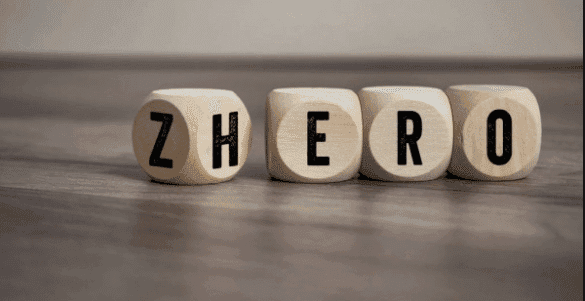The Hidden Dangers: How Social Media Impact Children’s Mental Health and Academic Performance
Introduction to social media and its increasing influence on children
Social media has become an undeniable force in today’s digital age, captivating the attention of children and adolescents across the globe. From scrolling through endless feeds of perfectly curated images to connecting with friends or even strangers, social media offers a world of possibilities at our fingertips. However, beneath its shiny exterior lies a hidden danger that can significantly impact children’s mental health and academic performance. In this blog post, we will explore the negative effects of social media on young minds and provide valuable insights for parents on how they can protect their children in this virtual realm. So please grab a cup of coffee, and let’s delve into the unseen perils that lurk within the vast realm of social media!
The negative effects of social media on mental health:
The negative effects of social media on mental health can be far-reaching and impactful. One major issue arising from social media use is the comparison trap. Children are constantly exposed to carefully curated highlight reels of their peers’ lives, which can lead to feelings of inadequacy and low self-esteem.
Cyberbullying is another alarming consequence of social media usage among children. The anonymity and distance provided by online platforms make it easier for bullies to target their victims relentlessly. This constant harassment can have severe psychological effects, leading to anxiety, depression, and suicidal thoughts.
Additionally, excessive screen time spent scrolling through social media feeds often results in sleep deprivation. The addictive nature of these platforms makes it challenging for children to disconnect from their devices at night, disrupting their sleep patterns. Lack of proper rest affects cognitive function and overall well-being.
It’s crucial to acknowledge these negative impacts and understand how social media affects academic performance.
Distraction is a significant problem when students use social media during study hours or while completing homework assignments. Constant notifications and the urge to check updates frequently disrupt concentration levels and hinder productivity.
Moreover, misinformation spread through unreliable sources on social media platforms poses a threat to critical thinking skills among children. With vast amounts of information at their fingertips, discerning between credible sources becomes increasingly more challenging for young minds who may need more skills.
To protect our children’s mental health and ensure academic success despite the risks associated with social media usage, parents play a vital role.
– Comparison and self-esteem issues
Social media has become an integral part of our daily lives, and children are no exception to this trend. However, the impact of social media on children’s mental health is a growing concern. One of the negative effects that arises from social media usage is comparison and self-esteem issues.
Children are constantly bombarded with carefully curated posts showcasing others’ “perfect” lives on platforms like Instagram and Facebook. This can lead to feelings of inadequacy as they compare themselves to their peers who seem happier, more successful, or more attractive. The pressure to conform to societal standards set by these online personas can be overwhelming for young minds still developing their sense of identity.
Moreover, the constant need for validation through likes and comments can negatively affect a child’s self-esteem. When their posts don’t receive as much attention as others, they may question their worth or popularity among their peers.
Furthermore, many social media users only share life highlights while concealing their challenges behind closed doors. This distorted perception can contribute to unrealistic expectations and a skewed sense of reality in children’s minds.
Parents should engage in open conversations about social media with their children to mitigate these issues. Encouraging healthy self-expression offline and nurturing genuine connections will help counteract comparison-driven mindsets fostered by social media platforms.
By fostering a sense of individuality and teaching kids that true happiness comes from within rather than external validation on social media platforms, we can empower them with healthier perspectives on self-worth.
– Cyberbullying
Cyberbullying: The Dark Side of Social Media
Social media platforms have undoubtedly revolutionized the way we connect and communicate with others. However, this technological advancement has also brought some hidden dangers, especially for children. One such risk is cyberbullying.
In today’s digital age, bullying no longer happens on the playground or in school corridors; it can now invade a child’s life through their screens. Cyberbullying involves using technology to harass, intimidate, or humiliate someone online. It takes various forms – from hurtful comments and spreading rumors to sharing embarrassing photos or videos.
The impact of cyberbullying on a child’s mental health cannot be underestimated. Constant exposure to negative online interactions can lead to feelings of anxiety, depression, and low self-esteem. Victims may become socially isolated as they fear facing their online and offline tormentors.
Unfortunately, cyberbullying can follow children everywhere they go since smartphones provide constant access to social media platforms. This 24/7 connectivity makes it difficult for victims to escape the harassment and find solace.
As parents and guardians, we must educate ourselves about cyberbullying to protect our children effectively. We must keep an open line of communication with them and create a safe space where they feel comfortable discussing any issues they might encounter online.
Additionally, teaching our children empathy is essential in combating cyberbullying. By fostering kindness towards others offline and online, we can help reduce bullying behavior.
It is important not only for parents but also for schools and policymakers to take action against cyberbullying by enforcing stricter regulations within social media platforms themselves. This could include implementing stronger reporting systems or holding individuals accountable for their actions when engaging in harmful behaviors online.
In conclusion, cyberbullying poses serious threats to the mental well-being of our children growing up surrounded by social media platforms. By staying vigilant as parents, educating ourselves and our children about the dangers of cyberbullying, and advocating for
– Sleep deprivation and addiction
Sleep deprivation and addiction are two major concerns regarding the impact of social media on children’s mental health. The addictive nature of social media platforms can lead to excessive screen time, causing children to stay up late into the night, scrolling through their feeds. This can result in a lack of quality sleep, leading to fatigue, irritability, and difficulties concentrating during the day.
The constant stimulation provided by social media also makes it difficult for children to disconnect and relax before bedtime. The blue light emitted by screens suppresses melatonin production, a hormone that regulates sleep cycles. As a result, falling asleep becomes more challenging.
Furthermore, addiction to social media can have long-term effects on mental health. Children may become overly dependent on receiving validation through likes and comments from their peers online. This need for external validation can negatively impact self-esteem and contribute to feelings of inadequacy or anxiety.
Parents need to create boundaries around screen time and encourage healthy sleep habits. Setting consistent bedtimes and creating technology-free zones in the evening can help promote better sleep hygiene. Encouraging offline activities such as reading books or engaging in physical exercise can also provide alternatives that support overall well-being.
Addressing the issue of sleep deprivation and addiction related to social media is crucial for safeguarding children’s mental health. By promoting healthy habits around technology use and providing opportunities for offline activities, parents can help mitigate these negative effects on their child’s well-being.
The impact of social media on academic performance:
The impact of social media on academic performance is a growing concern among parents and educators alike. With the constant access to online distractions, it’s no wonder students need help to stay focused on their studies.
One major issue is the prevalence of multitasking while using social media. Students may think they can efficiently switch between scrolling through Instagram and studying for an exam. Still, research has shown that this type of multitasking decreases productivity and retention of information.
Another problem is the temptation to procrastinate. Social media platforms provide endless entertainment and instant gratification, making it easy for students to put off important assignments or studying in favor of mindlessly scrolling through their feeds.
Additionally, there is a danger in relying solely on social media as a source of information. With the abundance of fake news and misinformation circulating online, students must develop critical thinking skills to discern fact from fiction. Unfortunately, spending excessive time on social media can hinder these skills from developing properly.
To combat these negative effects on academic performance, parents and educators need to emphasize the importance of setting boundaries regarding social media usage. Encouraging designated study periods without distractions from screens can greatly improve focus and productivity.
Furthermore, teaching students about reliable sources and evaluating information critically will enable them to navigate misinformation online more effectively.
Understanding social media’s impact on academic performance allows us, as responsible adults, to guide our children towards healthier habits with technology usage. By addressing these issues head-on and providing support where needed, we can help our children succeed academically while still enjoying social media’s benefits.
– Distraction and procrastination
The constant lure of social media can have a detrimental effect on children’s academic performance. One major issue is the prevalence of distraction and procrastination. With endless scrolling feeds and notifications, it’s easy for kids to get caught up in the virtual world instead of focusing on their studies.
When students use social media while studying or doing homework, they often need help concentrating fully. They may start with good intentions but quickly become sidetracked by interesting posts or messages from friends. This leads to a loss of valuable study time and decreased productivity.
Social media platforms are also designed to be addictive, keeping users engaged for as long as possible—the more time spent on these platforms, the less time available for studying and completing assignments. Students may need to catch up academically due to excessive social media usage.
Furthermore, constantly switching between tasks – checking social media updates and trying to focus on schoolwork – can negatively impact cognitive abilities such as memory retention and information processing. It becomes difficult for children to absorb new knowledge when their attention is divided.
To combat this issue, parents should encourage their children to establish healthy habits around technology use. Setting specific times for focused studying without distractions can help improve academic performance significantly. Creating an environment free from digital interruptions will enable students to concentrate better on their work.
Parents must lead by example, too – showing restraint in using social media while prioritizing offline activities like reading books or engaging in hobbies with their children.
By addressing the distraction and procrastination caused by excessive use of social media head-on, parents can help ensure that their children maintain a healthy balance between online engagement and academic success.
– Misinformation and lack of critical thinking skills
Misinformation and lack of critical thinking skills are two significant challenges that children face in the age of social media. With the abundance of online information, it can be difficult for young minds to differentiate between fact and fiction. This can distort their understanding of the world and hinder their ability to think critically.
Social media platforms amplify misinformation through viral posts, clickbait headlines, and manipulative algorithms. Children may unknowingly consume false information without questioning its validity or seeking reliable sources. This lack of critical thinking skills can seriously affect their academic performance and development.
In an era where news spreads lightning, parents must teach their children how to evaluate information critically. Encouraging them to question the source, cross-reference facts with reputable sources, and analyze biases will equip them with essential skills needed in today’s digital landscape.
Parents should also foster open discussions about current events and encourage healthy skepticism when consuming content online. By teaching children how to discern credible information from misleading narratives, they will develop a stronger foundation for academic success and become responsible digital citizens.
It is important for children and adults alike to stay vigilant against misinformation on social media platforms. By promoting critical thinking skills within our younger generation, we can help them navigate the vast sea of information confidently and clearly.
How parents can help their children navigate the dangers of social media:
Setting limits and monitoring usage is crucial for parents to help their children navigate the dangers of social media. Parents can ensure that their children are not becoming overly consumed by these online spaces by establishing clear guidelines on how much time can be spent on social media platforms.
In addition to setting time limits, parents need to monitor their child’s online activity actively. This includes regularly checking in on what they are posting, who they interact with, and any potential signs of cyberbullying or other harmful behavior. Parents can intervene early if any issues arise by staying involved and aware.
Encouraging healthy offline activities is another way parents can support their children in balancing their use of social media. Please enable them to participate in extracurricular activities to pursue hobbies or interests outside the digital world. This helps create a well-rounded lifestyle where online interactions do not dominate every aspect of their lives.
Furthermore, open communication between parent and child is essential when dealing with the impact of social media. Please encourage your child to discuss any concerns or negative experiences they may have encountered using these platforms. Create a safe space where they feel comfortable discussing these issues without fear of judgment or punishment.
By being proactive and involved in your child’s digital life while encouraging a healthy balance between online and offline activities, you can help protect them from the hidden dangers associated with excessive use of social media.
– Setting limits and monitoring usage
Setting limits and monitoring social media usage is crucial for parents in protecting their children’s mental health and academic performance. With the ever-increasing influence of social media on young minds, it becomes essential to establish boundaries that promote a healthy balance between online and offline activities.
Parents should set clear guidelines regarding screen time and usage. This includes specifying the amount of time allowed for using social media platforms each day and establishing designated times when devices are off-limits. By doing so, parents can help prevent excessive exposure to social media and ensure that children have ample time for other important activities, such as studying or engaging in physical exercise.
In addition to setting limits, it is equally important for parents to monitor their children’s online activities actively. Regularly checking their child’s profiles and friend lists can help identify potential red flags or signs of cyberbullying. Parents should also engage in open conversations with their children about the content they come across on social media, encouraging critical thinking skills and teaching them how to differentiate reliable information from misinformation.
Parents can create a supportive environment where open communication thrives by being involved in their child’s digital world while respecting privacy boundaries. It allows space for addressing concerns related to comparison issues or any negative impact that may arise from excessive use of social media platforms.
Setting limits and monitoring usage empower parents to safeguard their children against hidden dangers associated with social media while nurturing positive mental health outcomes and promoting overall academic success.
– Encouraging healthy offline activities
In today’s digital age, prioritizing healthy offline activities for children is more important than ever. While social media can be a source of entertainment and connection, spending too much time online can negatively affect mental health and academic performance.
Parents play a crucial role in helping their children develop a balanced lifestyle that includes screen time and other engaging activities. Encouraging kids to participate in physical activities like sports or outdoor games keeps them physically fit, promotes social interaction, and boosts self-esteem.
Creative pursuits such as art, music, or writing are great outlets for self-expression and allow children to explore their talents outside the virtual world. Parents can help foster creativity and critical thinking skills by encouraging these offline hobbies.
Another way to promote healthy offline habits is by setting aside dedicated family time without screens. This could include regular game nights, movie outings, or walking together. These shared experiences not only strengthen family bonds but also provide opportunities for meaningful conversations away from social media distractions.
Parents need to lead by example when balancing screen time with real-life experiences. They show their children the importance of finding joy beyond the screen by demonstrating their engagement in offline activities like reading books or pursuing hobbies.
By prioritizing these healthy offline activities, parents can help mitigate the negative impacts of excessive social media use on their children’s mental health and academic performance while fostering well-rounded individuals who appreciate both the virtual and real worlds.
Conclusions
Social media significantly impacts children’s mental health and academic performance. The increasing influence of these platforms can be both a blessing and a curse for our young ones. While they provide opportunities for connection, creativity, and learning, the hidden dangers cannot be ignored.
The negative effects of social media on mental health are alarming. Children often fall into the trap of comparison, leading to self-esteem issues and feelings of inadequacy. Additionally, cyberbullying has become rampant online, causing immense emotional distress for those involved. Sleep deprivation and addiction also plague many children who struggle to disconnect from their devices.
Furthermore, social media poses challenges when it comes to academic performance. It is a constant source of distraction and procrastination, hindering students’ ability to focus on their studies effectively. Moreover, spreading misinformation through these platforms hampers critical thinking skills for navigating an increasingly complex world.
As parents, navigating these dangers with our children in mind is crucial. Setting limits and monitoring usage are essential steps in protecting their well-being while responsibly allowing them access to technology. Encouraging healthy offline activities can help balance the time spent online and foster well-rounded development.
Awareness is key – engaging in open conversations about the potential risks associated with social media can empower children to actively make informed decisions about their digital lives. Teaching them how to filter information critically and think independently beyond what they see online will equip them with invaluable skills for success academically and emotionally.
In conclusion (without using “In conclusion”), as parents or guardians responsible for shaping our children’s futures positively, we must recognize the hidden dangers that come hand-in-hand with social media use among youngsters today. With proper guidance and support from us adults combined with mindful use by our children, we can mitigate the negative impacts while fully harnessing all its benefits for their development.















